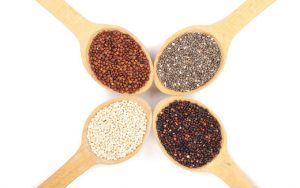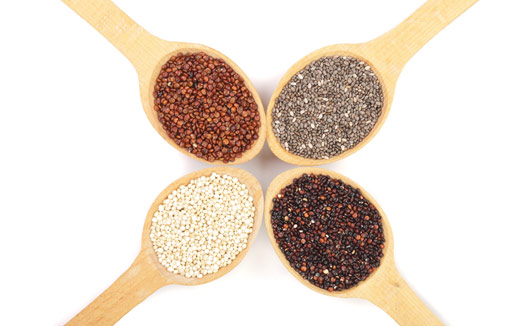 Protein comes in many shapes and forms. It can also be hidden within other sources. This might be something to consider when looking for alternative protein sources for your formulation or general intake. There are many different ways to meet your protein requirement levels. Gone are the days where meat is the sole or primary source of protein. For those of you who are plant-based or full vegan, or those of you who simply want to change up where and how to get protein, this article is for you.
Protein comes in many shapes and forms. It can also be hidden within other sources. This might be something to consider when looking for alternative protein sources for your formulation or general intake. There are many different ways to meet your protein requirement levels. Gone are the days where meat is the sole or primary source of protein. For those of you who are plant-based or full vegan, or those of you who simply want to change up where and how to get protein, this article is for you.
Protein is one of the most important macronutrients for both men and women. It’s considered an essential macronutrient because we need protein to live. How much you need will depend on your sex, age, height, weight, activity level, and health goals (weight loss, muscle building, maintenance, etc.). However, on average The Academy of Nutrition and Dietetics recommends 0.8 grams of protein per kilogram or 0.35 grams of protein per pound of body weight per day for “general health.”
Chia Seeds
Known as a “superfood,” chia seeds are loaded with high-benefit nutrients and low calories. They are packed with calcium, fiber, healthy fat, manganese, magnesium, phosphorus, potassium, zinc, antioxidants, and B-Vitamins.
-
-
- Protein: 4 grams per 28-gram serving which is about 14% by weight. This is considerably high, especially for a plant-based protein.
-
Chia seeds are known as a whole-grain food. They are organic and gluten-free and easy to add to a variety of foods. Chia seeds serve as an excellent topper on acai bowls, oatmeal, yogurt, fruits, and more.
Buckwheat
Buckwheat serves as a healthy alternative to flour and can be used in a wide variety of foods. In addition to protein, buckwheat contains high amounts of fiber, low amounts of fat, and other vitamins and minerals such as copper, manganese, magnesium, iron, and phosphorus.
-
-
- Protein: 13.3 grams per 100-gram serving.
-
Buckwheat is used as an alternative flour for those who have gluten-intolerances. Buckwheat is also lower on the glycemic index, which is better to maintain blood-sugar levels. Buckwheat can be used to make bread, cookies, oatmeal, and more.
Quinoa
While quinoa is classified as a whole-grain, it also acts as a good source of plant-based protein and fiber. Quinoa contains vitamins and minerals such as copper, folate, iron, zinc, magnesium, manganese, phosphorus, and more.
-
-
- Protein: 4.4 grams per 100-gram serving.
-
Quinoa is great as alternative rice or mixed in with rice. It makes a great side dish and can be used in oatmeal, porridge, salads, and more.
Supplements, Vitamins, and Minerals
While we at JW Nutritional help companies to manufacture and distribute supplements, we also want to be a source of helpful information for you to eat as many vitamins and minerals as possible naturally. The next time you’re looking to add a little protein to your day, consider one of these alternative protein sources or plant-based sources as a way to switch things up and feel satiated at the same time.
Ready to get started? Click the link below to find out what is possible!
Why JW Nutritional for Supplement Manufacturing?
JW Nutritional can manufacture a wide variety of supplements to suit the needs of your customers. With the inclusion of our complete packaging solutions including bottles with lid closures, sachets, stick packs and zip-seal bags, clients can receive a complete product that is ready for order fulfillment. If you are interested in the vitamin manufacturing services we offer, please contact us today!
